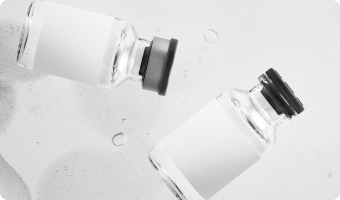MSM is a naturally occurring substance found in the human body and many foods. The highest concentration of MSM in nature is in mammal milk, but these sources contain MSM in parts per million. Therefore, you cannot extract, isolate or grow the compound.
Commercially available MSM does not come from wood, plants or fossil fuels. You can’t squeeze MSM from a tree, extract it from plants or remove it from petroleum or other fossil fuels. A chemical reaction is required to make MSM.
All commercially available MSM is synthetic and created through a chemical reaction of DMSO and hydrogen peroxide. Since all commercial MSM produced comes from DMSO, and all commercial DMSO is produced synthetically, the origin of the DMSO is insignificant.
DMSO is produced using several starting materials: methanol and hydrogen sulfide, or methanol and carbon disulfide. Whichever starting materials used, chemical reactions are required to produce DMSO.
There is a misconception that one supply of MSM is more natural than another. All MSM produced for commercial use utilizes the same raw materials—but there is a difference, and that boils down to the purification process, testing levels, specifications and quality of the manufacturing.
Balchem’s focus on purity sets OptiMSM® apart. Belchem pioneered the distillation process of MSM ensuring the highest levels of purity and safety. Chemical engineers and other experts recognize the multi-stage distillation process used to purify OptiMSM as the superior method on the market. The end product is biomimetic, which means the same as that found in nature.
Every batch of OptiMSM is third-party tested, ensuring optimal purity, quality, and consistency. In contrast to OptiMSM, other commercially available MSM uses crystallization to isolate the MSM molecule.















